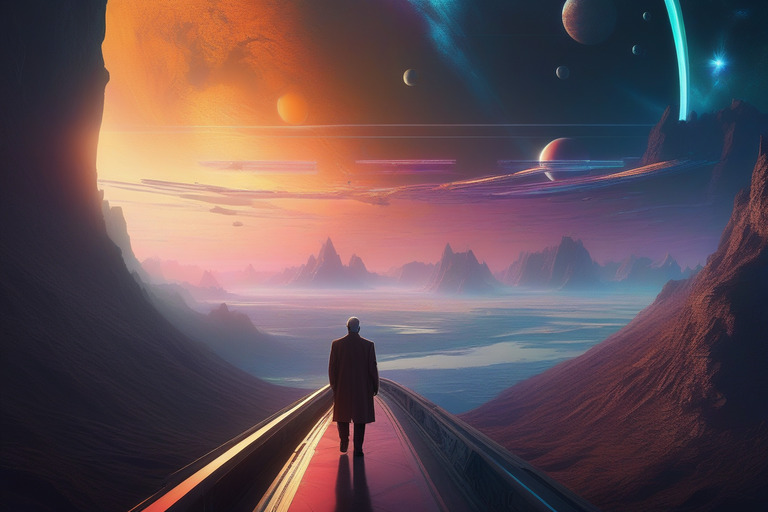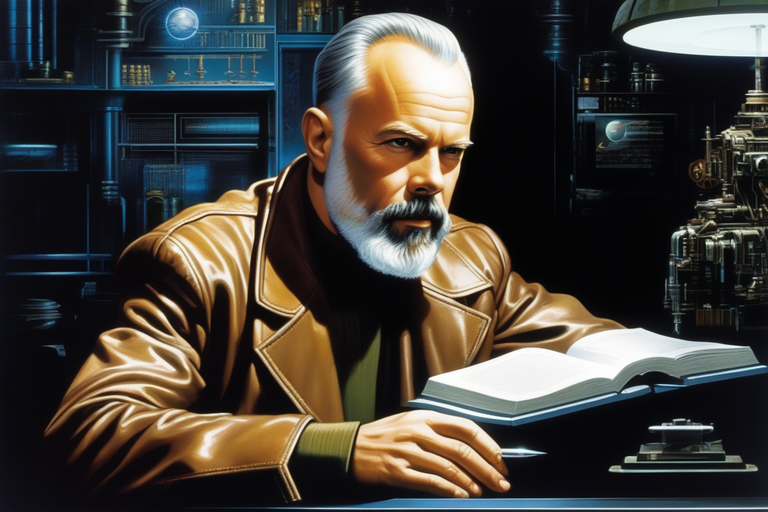PHILIP K. DICK 'S GNOSTIC SCI-FI ODYSSEY
Bridging Science Fiction and Gnosticism IN LIFE AND LITERATURE



Philip K. Dick, a name synonymous with visionary science fiction, carved a unique niche in the literary world, where his narratives often blurred the lines between reality and illusion. More intriguing, however, is how Dick's works frequently intersect with Gnostic themes, creating a fusion of sci-fi imagination and ancient spiritual wisdom. His relationship with these two realms offers a fascinating study into the mind of one of the 20th century's most influential and enigmatic writers.
Born in 1928, Dick's early exposure to diverse philosophical and religious texts laid the groundwork for his lifelong exploration of metaphysical and existential questions. His initial forays into science fiction were marked by conventional themes of the genre, like space travel and alternate realities. However, even in these early works, Dick demonstrated a keen interest in deeper philosophical questions, a prelude to his later Gnostic explorations.
Philip K. Dick's relationship with science fiction and Gnosticism reveals a writer deeply engaged with the existential dilemmas of his time. His works serve as a bridge between ancient spiritual teachings and the speculative possibilities of science fiction. Through his visionary storytelling, Dick invites readers to question the nature of reality, urging them to look beyond the surface and explore the deeper truths of existence. As our world becomes increasingly complex and interconnected, Dick's explorations of Gnostic themes within the framework of science fiction continue to offer profound insights into the human condition.
(this text is generated by Chat GPT)
Born in 1928, Dick's early exposure to diverse philosophical and religious texts laid the groundwork for his lifelong exploration of metaphysical and existential questions. His initial forays into science fiction were marked by conventional themes of the genre, like space travel and alternate realities. However, even in these early works, Dick demonstrated a keen interest in deeper philosophical questions, a prelude to his later Gnostic explorations.
- Illusion of Reality: Many of Dick's stories, such as "The Man in the High Castle," challenge the notion of a singular, objective reality. His characters often grapple with multiple, overlapping realities, a concept akin to the Gnostic belief in the illusory nature of the physical world.
- Search for Hidden Knowledge: Dick's protagonists frequently embark on quests for hidden truths, mirroring the Gnostic pursuit of spiritual knowledge. This is evident in works like "Do Androids Dream of Electric Sheep?" where the search for authenticity in a synthetic world parallels the Gnostic journey.
- Dualism and Cosmic Conflict: The Gnostic theme of dualism, the struggle between spiritual and material realms, is central in Dick's narratives. His novel "VALIS," for instance, explores the conflict between opposing cosmic forces, reflecting Gnostic cosmology.
- Redemption and Transcendence: The notion of spiritual redemption and transcendence, a key aspect of Gnosticism, is often portrayed in Dick's work as characters seek to transcend their limited, often dystopian realities.
Philip K. Dick's relationship with science fiction and Gnosticism reveals a writer deeply engaged with the existential dilemmas of his time. His works serve as a bridge between ancient spiritual teachings and the speculative possibilities of science fiction. Through his visionary storytelling, Dick invites readers to question the nature of reality, urging them to look beyond the surface and explore the deeper truths of existence. As our world becomes increasingly complex and interconnected, Dick's explorations of Gnostic themes within the framework of science fiction continue to offer profound insights into the human condition.
(this text is generated by Chat GPT)